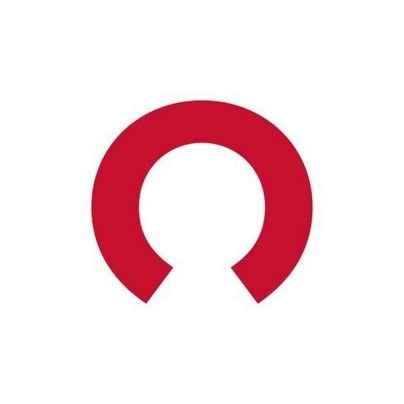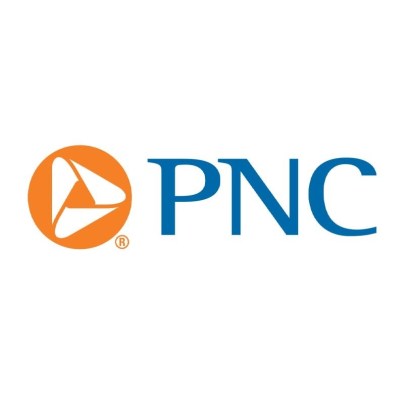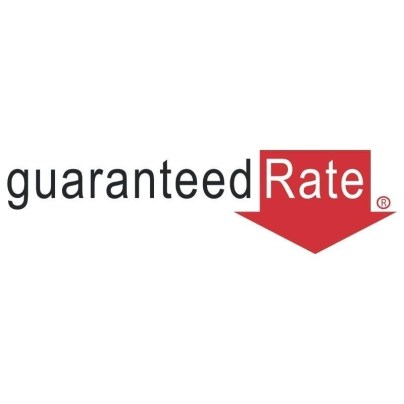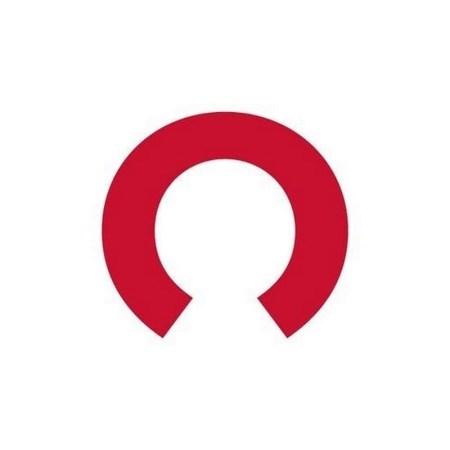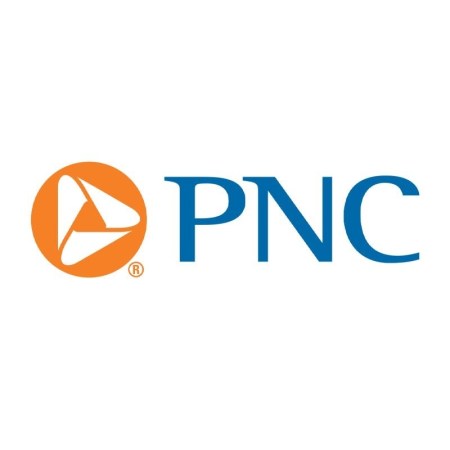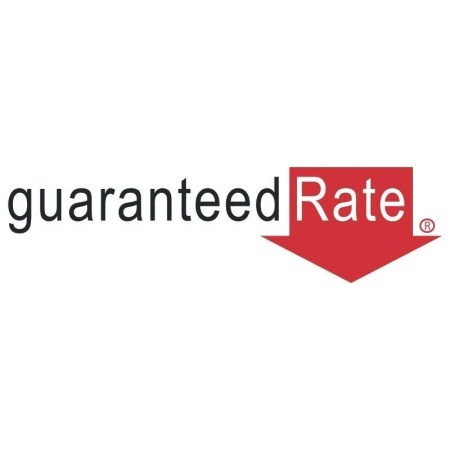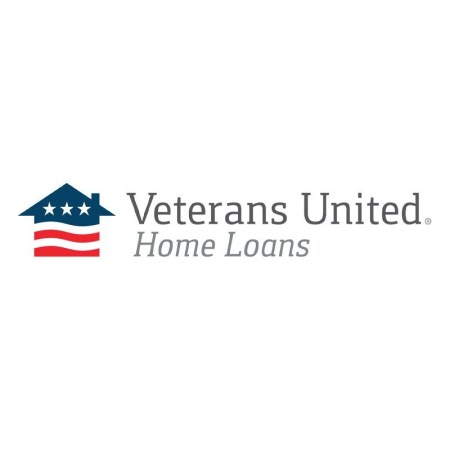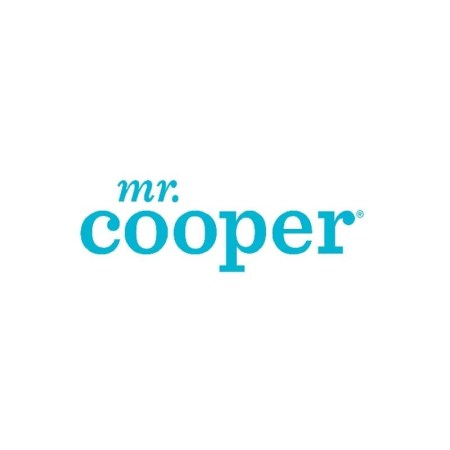
We may earn revenue from the products available on this page and participate in affiliate programs. Learn More ›
With its warm climate and sunny beaches, Florida is an appealing place to put down stakes and buy a forever home. Before Florida residents—or those considering making a move to the Sunshine State—can realize their dream of homeownership, though, they will likely need to secure financing for a new home.
The best mortgage lenders in Florida can help home buyers afford the high cost of purchasing a new home, offering competitive rates, various loan options, and helpful online and digital resources, among other benefits. Finding the right lender for any situation comes down to the factors that matter the most to a particular borrower. With that in mind, it’s a good idea to look at what each lender can offer and compare the best options available to Floridians.
- BEST OVERALL: Rocket Mortgage
- RUNNER-UP: PNC Bank
- BEST FOR FHA LOANS: Guaranteed Rate
- BEST FOR VA LOANS: Veterans United
- ALSO CONSIDER: Mr. Cooper

What to Consider When Choosing One of the Best Mortgage Lenders in Florida
Choosing one of the best mortgage lenders in Florida means comparing the features that matter most to a borrower so they can find a lending option best suited for their financial needs. Key features they may want to weigh include eligibility requirements, loan options, mortgage rates, and closing costs, among other factors.
Eligibility Requirements
Borrowers must meet certain eligibility requirements in order to qualify for a mortgage, which are set by the lender and can vary from one company to another. Lenders may weigh multiple factors when setting these requirements, including a minimum credit score, down payment, and debt-to-income (DTI) ratio. A borrower’s DTI ratio is simply their monthly gross income (earnings before subtracting taxes and other deductions) compared to the amount of debt they pay each month. The lower the DTI, the more attractive the borrower is to the lender because a smaller portion of their monthly income is earmarked for paying down debt, which means they should have more financial flexibility to consistently pay their mortgage each month.
The lender uses all of this information to qualify the borrower, recommend an appropriate mortgage product, and assess the overall risk of lending money to the borrower. Exact eligibility requirements can vary across lenders, though, and some may be more willing to extend a loan to borrowers with less-than-stellar qualifications. Prospective home buyers may want to take these requirements into consideration when selecting a lender, especially if they are concerned about their own qualifications as a borrower.
Loan Types
There are numerous loan types borrowers have to choose from, although they may not be eligible for each one. A few of the most common loan types include:
- Conventional loans: These loans are not backed by the government, which means they typically have strict eligibility requirements. Conventional loans can either have fixed interest rates (the rates will not change during the life of the loan) or adjustable rates (meaning the rates fluctuate based on market rates after an initial fixed-rate term).
- FHA loans. These mortgages are issued by private lenders but are regulated and backed by the Federal Housing Administration (FHA). This allows for more flexible eligibility requirements, and borrowers may qualify for an FHA loan even with lower credit scores, higher DTI ratios, or less money to put forward as a down payment.
- VA loans: These mortgages are offered specifically to active military members, veterans, retired or former service members, and eligible surviving spouses. Although the Department of Veterans Affairs (VA) doesn’t extend loans directly, it sets rules and guidelines for VA-approved lenders and guarantees the loans. VA loans offer many benefits for eligible borrowers, including competitive interest rates and limited closing cost requirements. Most notably, eligible home buyers may not be required to make a down payment or pay private mortgage insurance (PMI) on their VA loan.
- Jumbo loans: These mortgages are considered nonconforming loans since the loan amounts exceeds conforming limits. Borrowers may require a jumbo loan if they are looking to finance the purchase of a more expensive home, and will typically need to meet more stringent lender requirements, such as higher credit scores, lower DTI ratios, and larger down payments.
Home buyers may also need specialized financing to purchase specific types of homes, such as tiny houses or manufactured homes. In those circumstances, they may prefer to work with mobile home mortgage lenders and other companies that focus on loans beyond conventional or government-backed mortgages. In some cases, there may also be specialized loans tailored to the needs of specific professions. For instance, medical professional loans—sometimes referred to as physician mortgages—can help new doctors and other medical professionals get financing for a home purchase. These individuals may carry a lot of debt and have little savings at the outset of their career, and medical professional loans often offer more flexible lending terms to help them buy a home.
Loan Terms
The loan term refers to the length of the mortgage and the amount of time given to the borrower to repay their loan. It’s an essential piece of the loan and substantially impacts the total amount a borrower pays over the life of the loan. The longer a loan term is, the more interest a borrower ends up paying to the lender. Many standard fixed-rate mortgages come with either 15- or 30-year loan terms, but lenders may offer other options as well.
Loan terms can get more complicated, such as when a borrower takes out an adjustable rate mortgage (ARM). For instance, if a borrower takes out a 5/1 ARM, the interest rate will remain fixed for the first 5 years of the loan, then it will adjust yearly (based on market rates) for the remainder of the loan duration. In many cases, the total length of time given to a borrower to repay an ARM is 30 years, but exact loan terms could vary by lender.
Mortgage Rate
The mortgage rate, or interest rate, is the cost of borrowing money from a mortgage lender. The higher the interest rate, the more it costs the borrower to finance the home. A good mortgage rate varies from one lender to another, which is why it’s critical to shop around and compare mortgage lenders. Interest rates also fluctuate based on market conditions.
Mortgage lenders’ rates can also change based on the loan term, which may offer an incentive to choose one loan over another. For example, a 15-year mortgage often has a lower interest rate versus a 30-year option, so while the monthly payment may be higher, the buyer is paying less in interest over time. It’s important for home buyers or homeowners considering a refinance to weigh the benefits of a smaller monthly payment against the prospect of paying off their loan more quickly and with less interest owed.
Annual Percentage Rate
The annual percentage rate, or APR, is the most accurate measure of how much a borrower’s loan actually costs. APR not only includes the interest rate, it also includes the total costs associated with obtaining the loan. Like an interest rate, the APR is expressed as a percentage and includes the principal, interest, PMI, mortgage points (if applicable), and any other fees tacked onto the loan. When shopping around to choose a mortgage lender, it’s critical for borrowers to compare APRs, and not simply the interest rate, so they can see the true cost of borrowing from a particular lender.
For instance, FHA loans often have lower interest rates than conventional mortgages. However, FHA loans always require mortgage insurance, while conventional loans may not if the borrower puts forward a large enough down payment. As such, there may be instances where an FHA loan would have a higher APR than a conventional mortgage with the same loan terms. While borrowers may be enticed by the prospect of a lower mortgage rate in that scenario, they would actually wind up paying more by selecting the FHA loan.
Average Closing Costs
Closing costs are another major consideration when borrowers are comparing lenders, as they impact the up-front expenses that borrowers pay when taking out a mortgage. Closing costs are the additional costs and fees associated with closing on the mortgage, including the lender’s origination fees, initial homeowners insurance premium, title insurance, property taxes, appraisal fees, and attorney fees (if applicable). While some sellers may contribute money toward closing costs—they typically pay real estate agent commissions, for instance—buyers often shoulder a large share of the closing costs on a home sale. Some of these expenses can be rolled into the loan, but other fees must be paid up front and entirely out of pocket. Because closing costs can vary by lender, it’s worth it for borrowers to look at any fees they may owe at closing when budgeting for a mortgage and weighing options. Closing costs are also due when refinancing a home loan, so homeowners will want to take them into consideration when working with one of the best mortgage refinance companies.
Prequalification Process
Getting prequalified for a mortgage is a helpful step for borrowers, especially in competitive housing markets where sellers can be selective about the offers they receive. When considering prequalification vs. preapproval, it’s worth remembering that prequalification comes first and is based on information provided by the home buyer. The prequalification process allows the buyer to gain a firm understanding of how much they can afford to spend on a new house or condo. When getting prequalified for a loan, borrowers will receive an estimate of the maximum loan amount the lender is willing to extend to them. It doesn’t necessarily guarantee loan approval, but prequalification does give home buyers a sense of the loan size they may qualify for and, by extension, the price range of homes they can consider.
The prequalification process is usually quick, with many online mortgage lenders allowing borrowers to apply for prequalification through their website or mobile app. During this process, borrowers will be asked to provide some basic information regarding their finances, such as their income, monthly debt obligations, and desired down payment amount. This means that lenders do not necessarily need to run a credit check or assess financial documents (that will come later during the preapproval process), but it can also lead to off-base expectations if the borrower’s self-reported information is inaccurate.
Application Process
After a home buyer has made an offer on a home and reached a contingent agreement with the seller, they will need to formally apply for a loan with their preferred lender. During the application process, borrowers will be asked to submit various documents related to their personal finances, including bank statements, tax returns, and pay stubs. Due to the extensive underwriting review process, it can take several weeks or even a couple of months for a borrower’s loan application to be approved. That being said, some lenders offer accelerated application reviews, which can significantly shorten the amount of time needed to close on a home loan.
Many lenders also now offer online applications to help expedite the process further. A borrower can submit their documentation electronically, uploading financial statements through an online portal or mobile app. While many home buyers will appreciate the speed and convenience that an online application process can offer, others may prefer to work more closely with a loan officer. In those scenarios, they may want to seek out those that maintain a physical presence in Florida, with local mortgage lenders who can assist them throughout the application process.
Mortgage Points
Mortgage points, also referred to as discount points, give the borrower an opportunity to lower their interest rate by “buying down the rate.” In exchange for paying an up-front fee, borrowers can receive a lower interest rate on their mortgage. By doing so, home buyers can reduce the overall cost of a mortgage, assuming they do not refinance their home loan in the ensuing years.
It’s important for borrowers to carefully calculate the potential savings that mortgage points can offer and determine if those long-term savings are worth the up-front expense. In that regard, they may want to look at the break-even point on a loan with mortgage points—the point when the savings on interest outpace the amount paid on discount points. For those who decide that buying down the rate is the right financial move, it’s worth noting that not all lenders offer mortgage points, so they will need to confirm with their preferred lender that this option is available.
Our Top Picks
The best mortgage lenders in Florida can offer a range of loan choices, flexible financing and down payment options, and user-friendly loan application and management processes. Each borrower in Florida may weigh these benefits differently, so it’s important to carefully consider what each lender brings to the table and find a mortgage company that can meet their needs.
Best Overall
Rocket Mortgage
Why It Made the Cut:
Rocket Mortgage offers generous closing credits and rebates to home buyers, as well as a streamlined application and closing process and a 90-day rate-lock option.
Rocket Mortgage has an array of benefits for borrowers in Florida, including a user-friendly application process that can be completed entirely through its dedicated mobile app. Once they have been approved for a mortgage, borrowers can also set up payments, view loan documents, check their amortization schedule (which lays out each loan payment throughout the duration of the mortgage), and review refinance options all through the app. Although the company’s mortgage calculator can be somewhat confusing due to the assumptions it uses, other digital resources can help borrowers immensely. For instance, Rocket Mortgage’s online rewards program rewards customers with points that can be redeemed to cover closing costs on a home loan.
In addition, some borrowers may qualify for up to a $10,000 closing credit. Furthermore, the lender offers a rebate up to 0.5 percent of the sales price if the borrower is both buying and selling a home through a qualifying agent. Home buyers seeking conventional loans may also be interested to know that the lender may be able to offer relatively low mortgage rates on these types of mortgages. Plus, the 90-day rate-lock option gives prospective borrowers peace of mind as they wait to purchase a home and potentially avoid another interest-rate hike. These various perks and benefits could help home buyers lower the total cost of their mortgage.
Specs
- Loan types: Fixed rate, ARM, FHA, jumbo, VA loans, FHA 203(k)
- Loan terms: 15, 20, or 30 years on fixed-rate loans; 7 or 10 years on ARM loans
- Prequalification process: Online, phone
- Application process: Online, phone, app
- NMLS unique identifier: 3030
Pros
- Relatively low mortgage rates on conventional home loans
- Up to $10,000 closing credit available
- Rebate up to 0.5 percent of sale price when buying and selling a home
- 90-day rate-lock option
- Rewards program points redeemable toward closing costs
- Convenient mortgage application and management via mobile app
Cons
- Somewhat misleading mortgage rate tool
Runner-Up
PNC Bank
Why It Made the Cut:
PNC Bank stands out by offering borrowers in Florida a variety of loan options, including USDA loans, plus user-friendly tools throughout the application and lending process.
PNC Bank offers a large assortment of loan products, including USDA loans, which are not always available with every lender. These mortgages could be very appealing to home buyers in designated rural areas who want to take out a home loan without making a down payment. PNC Bank also stands out with its specialized financing options that may be a welcome alternative to FHA loans. Borrowers who qualify for a PNC Community Loan could receive a mortgage with a down payment as low as 3 percent—and without needing to pay PMI.
While there isn’t an online prequalification option available, borrowers may appreciate the user-friendly home affordability calculator and real estate platform, which can help them accurately determine how much to spend on a house and then find homes in that price range in different real estate markets. PNC Bank also offers a closing cost grant of up to $5,000 for qualifying borrowers, which can go toward property taxes, insurance payments, or a down payment on a new home.
Specs
- Loan types: Fixed rate, ARM, FHA, VA loans, USDA loans, medical professional
- Loan terms: 15 or 30 years on fixed-rate loans; 5, 7, or 10 years on ARM loans
- Prequalification process: Phone, agent
- Application process: Online, phone, agent
- NMLS unique identifier: 446303
Pros
- Closing cost grant of up to $5,000 available for qualifying borrowers
- Low 3 percent down payment option with no PMI
- USDA loan options available
- User-friendly and details-driven home affordability calculator and real estate platform
Cons
- Online prequalification unavailable
Best for FHA Loans
Guaranteed Rate
Specs
- Loan types: Fixed rate, ARM, FHA, jumbo, VA loans, FHA 203(k), medical professional
- Loan terms: 15 or 30 years on fixed-rate loans; 5, 7, or 10 years on ARM loans
- Prequalification process: Online, phone
- Application process: Online, phone, app, agent
- NMLS unique identifier: 2611
Pros
- Relatively low mortgage rates on FHA loans
- Same-day mortgage approval possible
- 90-day rate-lock option
- Convenient mortgage application and management via mobile app
Cons
- Relatively high mortgage rates on conventional home loans
- Relatively high mortgage rates on VA home loans
Why It Made the Cut: Guaranteed Rate is worth consideration for any borrower interested in an FHA loan because of its competitive interest rates available, along with a long rate-lock option and same-day mortgage approval offer. Guaranteed Rate sets itself apart from the best mortgage lenders in Florida in a few notable ways. For instance, the company offers same-day mortgage approval to eligible borrowers, which could mean closing on a mortgage loan in as few as 10 days. This option may be very appealing to home buyers who want to move quickly and close on a new house as soon as possible. Plus, Guaranteed Rate offers a convenient mortgage application and loan process entirely through its mobile app, and borrowers can manage various aspects of their mortgage through the app even after their loan has been funded. Borrowers interested in conventional or VA loans may find the company’s interest rates to be somewhat high for those types of mortgages, but FHA loans are a different story. Guaranteed Rate may be able to offer highly competitive mortgage rates on FHA loans in Florida. As such, anyone looking for financing with more flexible eligibility requirements may find Guaranteed Rate to be a great choice when reviewing the top FHA mortgage lenders in Florida. In fact, prospective borrowers may find Guaranteed Rate to be one of the best mortgage lenders for first-time buyers. In addition, the 90-day rate-lock option gives borrowers a chance to secure a mortgage rate for an extended period of time, which could help them avoid potential rate hikes while they search for the perfect home.
Best for VA Loans
Veterans United
Why It Made the Cut:
Veterans United specializes in VA loans, making it uniquely qualified to support borrowers looking for this type of financing with educational resources, credit consultations, and other benefits.
Active and former service members looking for VA mortgage lenders may want to seriously consider Veterans United for their financing needs. The company specializes in this type of mortgage, meaning that loan officers, representatives, and other employees are more likely to be extremely knowledgeable about VA mortgages and the process of securing this type of financing. Because Veterans United offers only VA loans, borrowers will not be able to apply for conventional or FHA mortgages with this lender. In addition, the VA loan eligibility requirements will exclude civilians from qualifying for financing.
Those who are eligible for VA mortgages may find plenty to like with Veterans United, including the possibility of qualifying for competitive rates on a VA loan. In addition, the company offers a number of free services to help prospective borrowers navigate the mortgage process, including an extensive online course that walks through the home-buying journey step by step. Service members who may not be eligible for financing can also receive credit consulting services with Veterans United, which can involve working with financial specialists to correct credit report errors, map out a plan to pay down debt, and help them work toward the goal of homeownership.
Specs
- Loan types: VA loans
- Loan terms: 15 to 30 years
- Prequalification process: Online, phone
- Application process: Online, phone
- NMLS unique identifier: 1907
Pros
- Specialty in VA loans
- Relatively low mortgage rates on VA home loans
- Extensive and informative online VA home-buying course
- Free credit consulting services
Cons
- Financing unavailable for civilian home buyers
- Conventional and FHA mortgages unavailable
Also Consider
Mr. Cooper
Why It Made the Cut:
Mr. Cooper may be able to offer competitive rates on conventional loans, as well as rate reduction options and incentives for future mortgage refinancing.
Borrowers in Florida considering a conventional loan may want to add Mr. Cooper to the top of their list. Although rates on FHA and VA loans may be somewhat high in certain cases—and there’s no online prequalification or application option—Mr. Cooper may be able to offer competitive interest rates on conventional loans, including fixed-rate and ARM financing. As such, Floridians who qualify for lower mortgage rates could wind up paying less interest during the life of their home loan.
There are other ways for borrowers to save too, including a 1 percent rate reduction offer that can lower interest rates for the first year of a conventional mortgage. Those who qualify for this offer would then have smaller monthly payments at the outset of their mortgage as well as pay less interest over the life of the loan. In addition, borrowers may qualify for up to $1,500 in credits to put toward future refinancing, which could save them money if they decide to refinance within 3 years of originating their home loan.
Specs
- Loan types: Fixed rate, ARM, FHA, VA loans
- Loan terms: 15 or 30 years on fixed-rate loans; 3, 5, or 10 years on ARM loans
- Prequalification process: Phone
- Application process: Phone
- NMLS unique identifier: 2119
Pros
- Relatively low mortgage rates on conventional home loans
- 1 percent rate reduction for first year of conventional mortgages
- Up to $1,500 credit for future mortgage refinancing
Cons
- Relatively high mortgage rates on FHA home loans
- Relatively high mortgage rates on VA home loans
- No online prequalification or application option
Our Verdict
Rocket Mortgage is our pick for Best Overall based on its competitive rates on conventional loans, 90-day rate-lock option, and convenient application process. The Runner-Up award goes to PNC Bank due to the availability of USDA loan options, closing cost grant offers, and low down payment options.
How We Chose the Best Mortgage Lenders in Florida
When we were determining the best mortgage lenders in Florida, our research looked at numerous data points that may be extremely important to buyers in the Sunshine State. This extensive research involved reviewing mortgage rates and APRs across different types of loan products, as well as the loan terms and down payment options available to borrowers. The prequalification, preapplication, and application processes were also reviewed with a consideration for how they may appeal to prospective home buyers and borrowers in Florida. Several other key factors were weighed as well, such as extra benefits, perks, and offers that might benefit borrowers taking out a home loan. We also checked each lender’s unique identification number with the Nationwide Mortgage Licensing System (NMLS), to verify that they are registered and licensed with the state of Florida.
Before You Choose One of the Best Mortgage Lenders in Florida
Before a borrower selects a mortgage lender, it’s strongly recommended that they assess their own finances so they understand how much they can truly afford to spend on a monthly mortgage payment as well as the overall cost of owning a home. Many expenses go into a monthly mortgage payment, including the principal, interest, property taxes, and homeowners insurance premiums. Depending on the circumstances, homeowners may also need to budget for private mortgage insurance and homeowners association fees, adding to their monthly financial obligations. As a borrower is searching for a lender, they may find it helpful to keep a running total of all the monthly obligations they can expect, so they can find the best payment option that works within their realistic budget. It’s also possible that prospective buyers will come to the conclusion that they are not financially ready to take on the responsibility of homeownership and may need more time to shore up their finances.
Private mortgage lenders may be another option for home buyers to explore, although it is fairly unconventional. When using private mortgage lenders in Florida, borrowers are essentially taking out loans from family members, friends, or acquaintances rather than a licensed lender. This could lead to more flexibility regarding eligibility requirements and loan terms, but there are fewer financial protections, and borrowers may enjoy more peace of mind working with a licensed mortgage company.
Cost of Opting for One of the Best Mortgage Lenders in Florida
There are several out-of-pocket expenses associated with getting a mortgage, and buyers will want to keep these costs in mind when comparing lenders and budgeting for a new house—or even refinancing an existing mortgage. The down payment on a home is the largest expense that home buyers will need to account for, but there are other costs that will come up during the loan application process. These can include origination fees, appraisal fees, and title insurance premiums, among other costs.
When it’s time to fund a loan, a buyer is also responsible for other recurring expenses, such as homeowners insurance, property taxes, interest, and the mortgage principal. These costs are typically rolled into a borrower’s monthly mortgage payment and may be paid through escrow, but that won’t always be the case for every expense. Another potential fee to consider is private mortgage insurance, which lenders often assess if the down payment is less than 20 percent of the purchase price. In those cases, mortgage insurance may cost, on average, 1.25 percent of the total loan amount. Borrowers considering FHA loans will want to note that these mortgages always come with mortgage insurance, and the only way to get rid of it is to refinance into a different type of home loan.
The Advantages of Opting for One of the Best Mortgage Lenders in Florida
Choosing one of the best mortgage lenders can offer multiple advantages for borrowers regardless of whether they are a first-time home buyer or if they are looking to refinance an existing loan. Lenders can often work with borrowers to find the best loan product and terms for their financial situation. Other benefits that may be available through Florida’s top mortgage lenders include:
- Long rate-lock options that allow buyers to secure an interest rate during lengthy home searches and insulate themselves against potential rate hikes;
- Competitive interest rates and APRs on various types of mortgages, including conventional, VA, and FHA loans; and
- Generous closing cost credits and grants that can help reduce a borrower’s out-of-pocket expenses when taking out a mortgage.
FAQs
Whether someone already lives in Florida or is planning on making the move within the near future, they may have questions about the mortgage process along the way of purchasing a home. By reviewing the answers to a few of the most common questions involving the mortgage process, prospective borrowers can put themselves in a better position to select the best mortgage lenders in Florida to suit their needs.
Q. How long does it take to get approved for a mortgage in Florida?
While prequalification or preapproval can be done in a day in some cases, getting fully approved for a mortgage generally takes at least a couple of weeks, with most approvals requiring at least 30 days. Some lenders may offer quicker mortgage approval timelines, but not all borrowers will qualify for these options.
Q. What credit score is needed to buy a house in Florida?
The credit score needed depends on the loan and lender. For example, FHA loans require a minimum credit score of 580, while conventional loans often have higher credit score requirements. Residential and commercial mortgage lenders in Florida will weigh each borrower’s credentials individually, however, so home buyers may need to meet higher credit requirements than the bare minimum to qualify for a mortgage. Those who cannot meet these conventional loan requirements may want to look into bad-credit mortgage lenders in Florida.
Q. How long does it take to close on a house in Florida?
There are numerous factors influencing the timeline to close on a house—most notably, how much time the lender needs to complete the underwriting process. On average though, a buyer can expect to close on a new house within 30 to 60 days.
